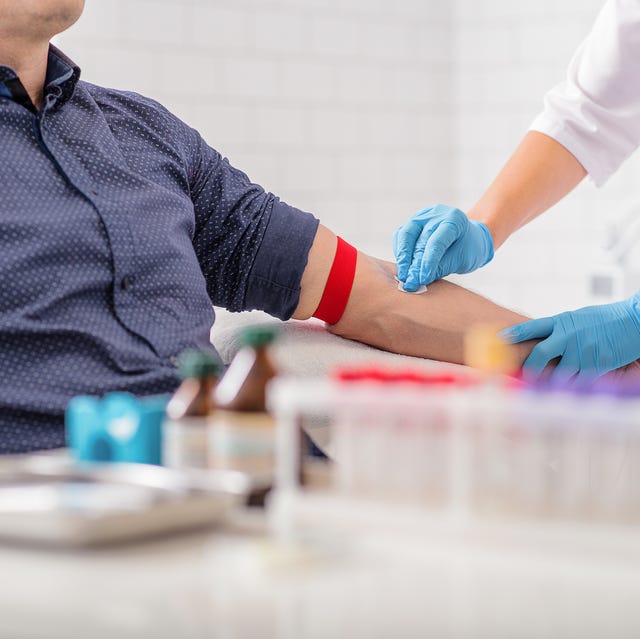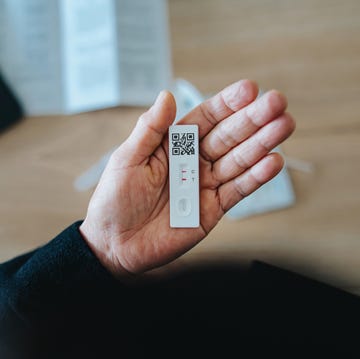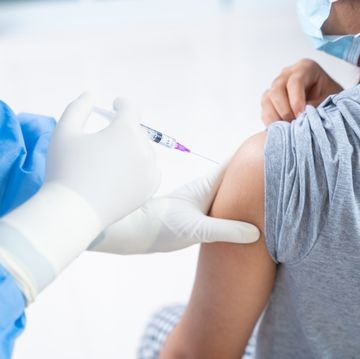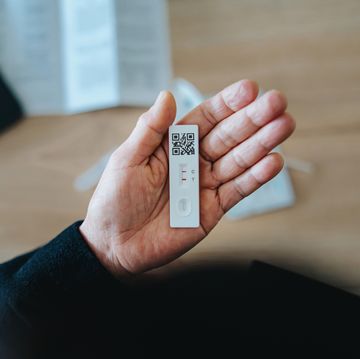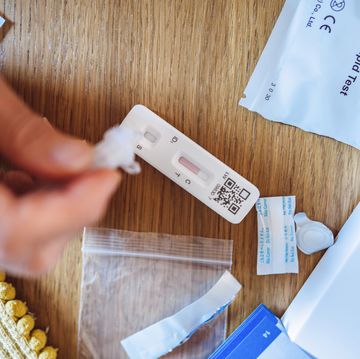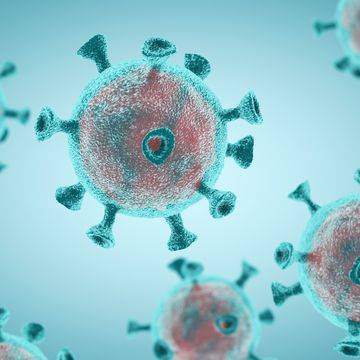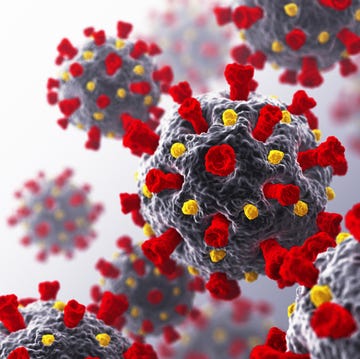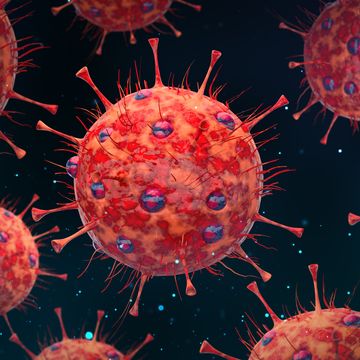- Blood supplies are being depleted due to hundreds of blood drive cancellations across the country amid the novel coronavirus (COVID-19) pandemic.
- Cancellations of blood drives have caused 8,000 uncollected blood donations, which “is going to end up in an unprecedented situation if we’re not careful,” officials say.
- Experts explain why it’s important to give blood at this time and how to do so safely.
The Food and Drug Administration and American Red Cross are urging people to give blood in the wake of hundreds of blood drive cancellations across the country due to novel coronavirus fears. Now, FDA officials say, blood supplies are being depleted.
“We need people to start turning out in force to give blood,” Peter Marks, M.D., Ph.D., director of the FDA’s Center for Biologics Evaluation and Research, said in a press release. Blood centers across the U.S. have had a “significant drop” in donations, limiting the ability for the country’s blood supply to be replenished, per Marks.
“We need people to prevent the blood supply from getting depleted. We need it not to get to the point that surgeries are having to get canceled,” Marks said. “That’s something we absolutely do not want to have happen. To ensure an adequate blood supply we need people to come out and donate blood.”
According to the American Red Cross, the cancellations of blood drives across the country have caused 8,000 uncollected blood donations. “This is going to end up in an unprecedented situation if we’re not careful,” Chris Hrouda, president of Biomedical Services for the American Red Cross, said in a press release. “We are doing everything in our power to ensure that we don’t get to a critical level of the blood supply. If we continue to see blood drives cancel, we are going to reach a level of inventory of which we haven’t seen in the past.”
The Centers for Disease Control and Prevention is currently recommending social distancing and doing your best to avoid crowds amid the COVID-19 outbreak. So, what should you do? Here’s what to know.
Is it safe to donate blood during the COVID-19 pandemic?
Experts agree that it’s safe to donate blood in most areas of the country right now, says Rajeev Fernando, M.D., an infectious disease expert in Southampton, New York.
“The Red Cross doesn’t do anything lightly,” points out Suzanne Willard, Ph.D., associate dean of Global Health at the Rutgers University School of Nursing. Meaning, if they think it’s safe for you to give blood, you should be fine to do so, she says.
“It’s not like you’re going out clothes shopping,” Willard says. “This is a true need, and we need to pay attention to it. If you need to go out, this is one of the best places to do it.” Of course, if COVID-19 is widespread in your area and local officials have urged you and others to stay in your home, it’s best to follow that advice. But, for most people, it should be fine, Dr. Fernando says.
How can you safely give blood during the COVID-19 pandemic?
The same rules apply for any time you go out in public. “Carry hand sanitizer [with at least 60% alcohol], if you have it, and practice good hand hygiene,” Dr. Fernando says. If you have disinfectant wipes with you, it’s not a bad idea to use them to wipe down any commonly used surfaces you come into contact with.
If you see anyone who is coughing and sneezing or appears to be visibly ill, do your best to avoid coming into contact with them, Dr. Fernando.
Keep in mind that the Red Cross is also doing their part to keep you safe. Jessa Merrill, spokesperson for the American Red Cross, tells Prevention.com that Red Cross employees “follow thorough safety protocols, including wearing gloves, routinely wiping down donor-touched areas, using sterile collection sets for every donation, and preparing the arm for donation with an aseptic scrub. Furthermore, Red Cross employees are trained in universal precautions to help prevent the spread of any type of infection.”
As an added precaution, the Red Cross now takes temperature checks of potential donors before they enter the blood drive or donation center. “As you may know, it is standard to take the temperature of all donors during the health screening process, but out of an abundance of caution for our staff and donors, we are implementing an additional step in the donation process to reduce the risk of anyone feeling unwell entering the drive,” Merrill says.
The Red Cross is also asking staff and donors at a blood drive to use hand sanitizer before entering the drive and throughout the drive “as needed.” “We are also increasing vigilance concerning some of our safety protocols including enhanced disinfecting of equipment and changing staff gloves between each donor,” Merrill says.
To find a blood drive in your area, click here.
Like what you just read? You’ll love our magazine! Go here to subscribe. Don’t miss a thing by downloading Apple News here and following Prevention. Oh, and we’re on Instagram too.
